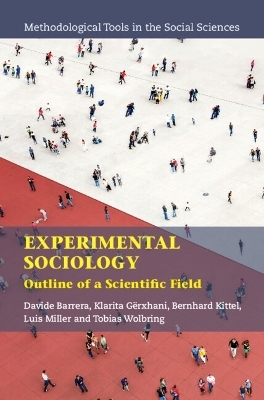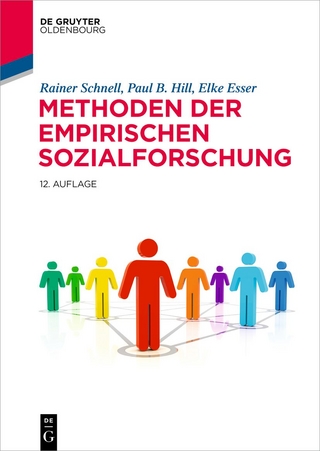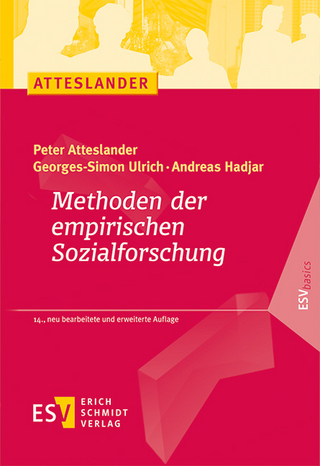
Experimental Sociology
Cambridge University Press (Verlag)
978-1-316-51522-8 (ISBN)
- Lieferbar (Termin unbekannt)
- Versandkostenfrei innerhalb Deutschlands
- Auch auf Rechnung
- Verfügbarkeit in der Filiale vor Ort prüfen
- Artikel merken
Experiments have gained prominence in sociology in recent years. Increased interest in testing causal theories through experimental designs has ignited a debate about which experimental designs can facilitate scientific progress in sociology. This book discusses the implications of research interests for the design of experiments, identifies points of commonality and disagreement among the different perspectives within sociology, and elaborates on the rationales of each. It helps experimental sociologists find appropriate designs for answering specific research questions while alerting them to the challenges. Offering more than just a guide, this book explores both the historical roots of experimental sociology and the cutting-edge techniques of rigorous sociology. It concludes with a tantalizing peek into the future and provides a roadmap to the exciting prospects and uncharted territories of experimental sociology.
Davide Barrera is Associate Professor of Sociology at the University of Turin and Research Fellow at Collegio Carlo Alberto. His interdisciplinary research focuses especially on cooperation and trust. His work has appeared in prestigious journals such as Socio-Economic Review, Sociological Methods & Research, Social Networks, European Sociological Review, and more. Klarita Gërxhani is Professor of Socio-Economics at the Vrije Universiteit. Her interdisciplinary research bridges economics and sociology, occasionally venturing into social psychology. She has published in highly-ranked journals such as Journal of Political Economy, American Journal of Sociology, Harvard Business Review, Annual Review of Sociology, Social Networks, Experimental Economics, and more. Bernhard Kittel is Professor of Economic Sociology at the University of Vienna. His research interests include distributive justice, labor markets, and welfare states, integrating perspectives from sociology, political science, and economics. He has published in high-ranking journals and is co-editor of Need-based Distributive Justice (2020) and Priority of Needs? (2024). Luis Miller is Research Scientist at the Spanish National Research Council. He uses experiments and behavioral models to understand social and political behaviors in divided societies. He has published in highly-ranked journals such as PNAS, Political Analysis, Journal of Conflict Resolution, Sociological Methods & Research, European Economic Review, and more. Tobias Wolbring is Professor of Economic Sociology at Friedrich-Alexander-University Erlangen-Nürnberg. His research is located at the intersection of sociology, economics, and psychology. He has published textbooks and papers in high-ranking journals, was a visiting professor in Hong Kong and Utrecht, and has received various awards including the Robert K. Merton Prize.
1. Introduction; Part I. The Philosophy and Methodology of Experimentation in Sociology: 2. The development of experimental sociology; 3. What makes sociological experiments different from other experiments?; 4. Experiments and causality; 5. Experimental designs and typologies; Part II. The Practice of Experimentation in Sociology: 6. Laboratory experiments; 7. Field experiments; 8. Vignette experiments; 9. Natural experiments and quasi-experiments; Part III. Methodological Challenges of Experimentation in Sociology: 10. Validity; 11. Incentives; 12. Ethics and deception; 13. Experimental sociology – quo vadis?
| Erscheinungsdatum | 13.11.2024 |
|---|---|
| Reihe/Serie | Methodological Tools in the Social Sciences |
| Zusatzinfo | Worked examples or Exercises |
| Verlagsort | Cambridge |
| Sprache | englisch |
| Themenwelt | Sozialwissenschaften ► Soziologie ► Empirische Sozialforschung |
| ISBN-10 | 1-316-51522-2 / 1316515222 |
| ISBN-13 | 978-1-316-51522-8 / 9781316515228 |
| Zustand | Neuware |
| Haben Sie eine Frage zum Produkt? |
aus dem Bereich


